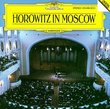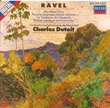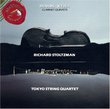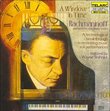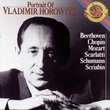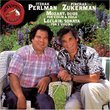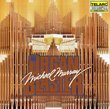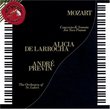Chopin + Schumann + Horowitz = Unforgettable Playing
Hank Drake | Cleveland, OH United States | 04/12/2003
(5 out of 5 stars)
"Volume Seven of Sony's Horowitz reissue contains very convincing performances of Chopin and Schumann, Romantic composers whose music was sympathetic to the pianist's interpretive style. It was not uncommon for Horowitz to bring to light a rarely played work by a well known composer, which is the case with Chopin's Introduction & Rondo in E-flat. This early composition (probably written for Chopin's most advanced pupils) abounds with glittery passagework and technical configurations similar to his Concertos (which Horowitz never recorded). Under Horowitz's hands, the work exceeds the boundaries of mere salon piece and emerges as a virtuoso tour de force.Horowitz (who had a Polish grandmother and was fond of pointing out that he was "half as much a Pole as Chopin") considered the Mazurkas to be Chopin's greatest works, and often stated that there was more music in the shortest Chopin Mazurka than in the longest Mahler Symphony. The pianist treated the Mazurkas less as dance pieces than as "dance-fantasies" and his playing of the works was freer than the more straightforward Rubinstein. Highlights of this set include a seductive F-sharp Minor, Op. 59 No. 3. Horowitz made several recordings of the ever popular A-flat Polonaise, and this one adheres most closely to Chopin's text. The introduction is very sparsely pedalled (as if Horowitz were saying "Look! I can play the tricky introduction without using the pedal to cover up insufficient fingerwork. Take THAT, Rubinstein!"). The remainder of the piece goes with gusto and flair (too fast to be a Maestoso), but he somehow misses the grandeur which Rubinstein brought to the piece--and which Horowitz himself would attain in his last years. The A-major Polonaise is also taken at a fast clip, but this somehow seems more appropriate to this work, and one is reminded of Chopin's remark that if he were able to play the piece the way he meant it to be played, the piano would lay in ruins afterward. If anyone thought Horowitz, then approaching 70, had lost any of his fire, their worries were quickly dispelled with the Etudes included here. The C-sharp Minor goes at a rapid clip, but unlike many pianists, there is no loss of clarity. The famous Revolutionary Etude is given a more outwardly virtuosic performance then the pianist's 1963 recording, yet somehow the piece has less impact here. The ubiquitous C-sharp Minor Waltz is from the Boston concert of April 7, 1968. Three days previously, the Reverend Martin Luther King had been murdered in Memphis. At the beginning of this concert, Horowitz came onstage with an African-American minister, and played Chopin's Funeral March in memory of Dr. King.Horowitz learned Shumann's Kreisleriana in the 1930s, but did not play it in public until 1968. Several attempts to record the work in concert were not successful, and Horowitz came to the conclusion that he needed the peace and quiet of a recording studio to achieve the concentration for a performance suitable for posterity. Horowitz recorded the work at one inspired session on December 1, 1969, and this may well be the most successful Kreisleriana ever recorded. Ironically, Horowitz, who often had trouble holding together a Beethoven Sonata, makes this structurally splintered work emerge as one piece. This is one Kriesleriana which is never rambling or boring. There is virtuosity here, but never for its own sake, and there is poetry in plenty. This stands alongside the 1932 Liszt Sonata and 1951 Rachmaninoff Third Concerto as one of Horowitz's greatest recordings. However, it should be pointed out that this reissue of Kriesleriana uses a few alternate takes, which are markedly different from the original LP and an earlier CD issue (MK42409). Although the performance is basically similar, there are several differences in detail.Schumann's Variations on a Theme by Clara Wieck, originally included as a filler for the Kriesleriana record, is given a straightforward reading here. It a lovely little work, but it is even more beautiful in its original context: as the third movement from the composer's Sonata in F Minor, another rarely played work Horowitz would bring to light in 1975.The sound is more than acceptable here, and especially fine in the Schumann works."
Classic Chopin
Michael B. Richman | Portland, Maine USA | 11/23/2000
(5 out of 5 stars)
"Volume Seven of Vladimir Horowitz's "Complete Masterworks Recordings" ("Early Romantics") compiles almost two discs worth of classic Chopin performances. There's a little bit of everything here -- Polonaises, Etudes, Mazurkas and Preludes, but sadly no Nocturnes. The Chopin renditions here are as good as, if not better than, anything available -- Rubinstein, Kissin, Pollini and Cliburn included. And just when you thought the highlight of this collection was the Chopin material, on come two amazing pieces by Schumann, "Variations on a Theme by Clara Wreck" and "Kreislerania." The latter piece is a particular favorite of mine -- a wild and turbulent, and at times poetic and lovely, masterpiece which Horowitz captures in all its brilliance. In all, "Early Romantics" is a thoroughly enjoyable couple of discs that anyone should love."
The Schumann Kreisleriana is worth everything, and the Chopi
Craig Matteson | Ann Arbor, MI | 12/19/2005
(5 out of 5 stars)
"This is a must have dual CD set of one of the great pianists of all time playing some of his favorite music. Later in life Horowitz made a TV show that became a best selling VHS tape entitled "Horowitz: The Last Romantic". If you ever heard him play, you know that title is appropriate and what the grand piano style was all about.
I have often referred to recordings of music as photographs of music. And just as photographs of people a wonderfully valuable, they are not the real person and do not capture the real person. Even a movie or documentary distorts the reality of the person. Still, we treasure our home movies, photos, and recordings. And we should. We just need to remember what they really are and that they are representations of reality (or of fictions if that is what they are) rather than real life.
It was my good fortune to hear Horowitz in recital three times; twice here in Ann Arbor and once in East Lansing. While I have heard dozens of great pianists, and hundreds of very fine quality, Horowitz (and Rubenstein) had a special charisma that was totally involving. His playing had special qualities that were unique to him. He played more quietly and yet was able to send that whisper of sound to the farthest rows in Hill Auditorium. I believe the secret of his power was that he had so many shades of pianissimo. While we clearly here a great dynamic range in these recordings, the compressed nature of recordings cannot capture the full range of what we heard in live performance.
The other thing he had was the ability to not only keep the voices clear in the music he was playing, but to give each voice its own character and sound. The recording of Schumann's fabulous Opus 16, Kreisleriana included here captures this ability to a stunning degree. This recording should be in your collection and studied carefully. While these phantasies are full of contrasts that make listening to them seemingly easy, there is so much quality and interesting music that they will reward as much close listening and study as you can lavish on them.
The other Schumann work included is the "Variations on a theme by Clara Wieck" (who became Schumann's wife and was a superb and important pianist).
The Chopin pieces included here are a wonderful collection of etudes, mazurkas, the two famous polonaises, preludes, waltzes, and the wonderful but not often heard "Introduction and Rondo in E-flat major Op 16". These are all full of magic and will hold your imagination closely. I find myself saying, "Oh, I LOVE this piece" and then the next one comes on, and I say the same thing again and then again for the next one. They are all pieces I have learned to play or want to learn (like the Intro & Rondo).
Get a hold of these disks if you can. Just a number of wonderful listening experiences."
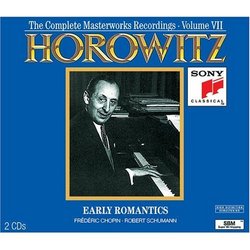

 Track Listings (14) - Disc #1
Track Listings (14) - Disc #1

